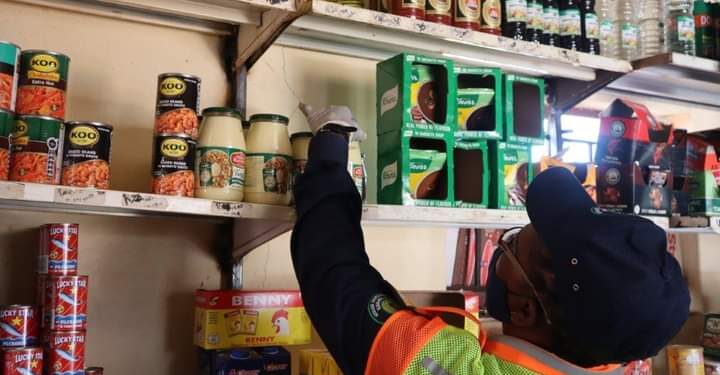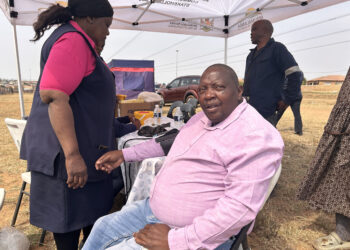SOUTH AFRICA – Government’s perceived retarded response in managing the food poisoning crisis in the country has been denounced by residents.
It took a death of at least 22 children to disturb the government from its deepest sleep to action against the food poisoning crisis in the country due to alleged consumption of contaminated food bought from spaza shops.
In a superficial display of disquietude, the country’s number one citizen Cyril Ramaphosa called a family meeting on Friday, November 15.
“As soon as the deaths occurred, multidisciplinary teams in government were activated to address these incidents,” Ramaphosa unashamedly said during his address to the nation.
He went on to say that the established teams including police detectives, environmental inspectors, officials from the department of health, agriculture and the National Consumer Commission (NCC), found instances where food was being stored alongside pesticides and detergents.
“It was also found that these spaza shops lacked proper safe food storage, hand and dishwashing facilities, increasing the likelihood of food contamination,” he said.
As part of government’s interventions, Ramaphosa directed that spaza shops which have been implicated in the deaths of children will be closed with immediate effect adding that spaza shops and other food handling facilities must be registered within municipalities in which they operate within 21 days.
“Any shop that is not registered within 21 days and does not meet all health standards and requirements will be closed.”
Mpumalanga residents queried government’s timing in dealing with the crisis. “This is what government should have done from the word go than to wait for kids to die before doing something about it,” said Jacob Maseko.
“I even doubt these interventions are meant to protect South Africans and save lives, if it is not a posture of wanting to be seen doing something since the world is watching.”
Thabiseng Ngobeni expressed that she feels government should have responded from the moment the first incident was reported. “Let alone waiting until a child has succumbed it,” she said. “There has always been an issue in our, I don’t know why it is taking so long for the government to take actions.”
Margaret Mudaka said much noise has been made in the country about the mushrooming of “illegal” spaza shops not complying with food, health and safety standards. “The loss of lives says that government has introduced these interventions too late,” she said.
Martin Langa expressed disappointment the President did not set his foot down on the issue of “closing all foreign owned spaza shops” for the purposes of checking compliance with the law.
“We expected him [Ramaphosa] to announce a closure of all spaza shops and go back into the constitution to see who is actually allowed to do business in South Africa,” he said.
The Immigrations Act provides requirements for foreign entrepreneurs who intend to establish or run a foreign owned business.
The Act requires foreigners to apply for a business visa which requires the applicant to invest a prescribed amount of R5 million into an existing business, or provide a business plan with evidence of the R5 million capital contribution.
The Department of Home Affairs is the custodian of the business visa process, however the Department of Trade, Industry and Competition facilitates the recommendation of support of granting business visas to businesses which have a substantive economic impact.
























